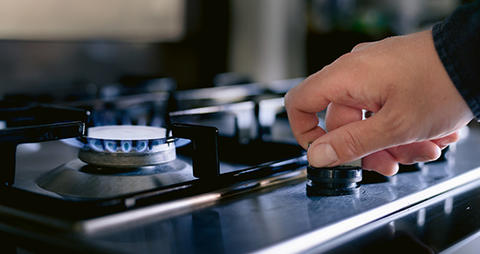Gas Leaks
Learn how to detect a gas leak and what to do in an emergency.
Image

Be Alert and Use Your Senses
Gas leaks can be extremely dangerous. A fire, explosion, property damage or serious bodily injury could occur when natural gas leaks from an appliance, damaged pipeline or gas meter. Be alert to and check for any of the following signs if you suspect a gas leak.
Staying Safe from a Gas Leak
If you suspect a natural gas leak, it’s important to act quickly and follow these steps to stay safe:
- Evacuate the area immediately.
- From a safe location, call SDG&E at 1-800-411-7343, available 24 hours a day, seven days a week or call 9-1-1.
- Don’t smoke or light a match/candle or other flame.
- Don’t turn on electric appliances or lights on or off, operate machinery or use any device that could cause a spark.
- ⚠Warning: Gas leaking from a plastic pipe can create static electricity that can ignite the gas.
- Remain Calm.